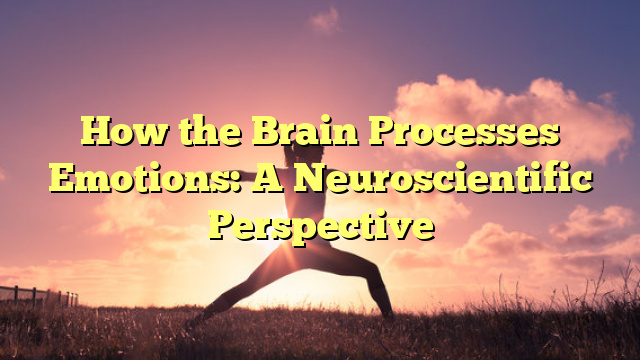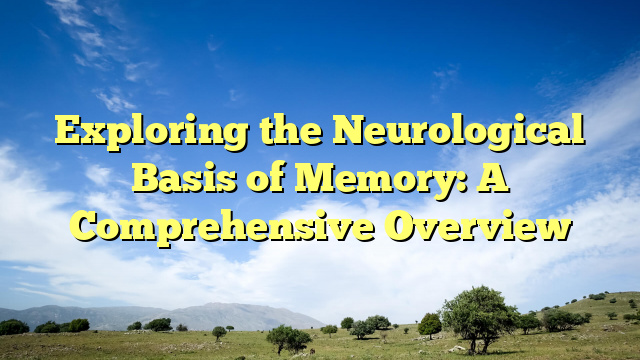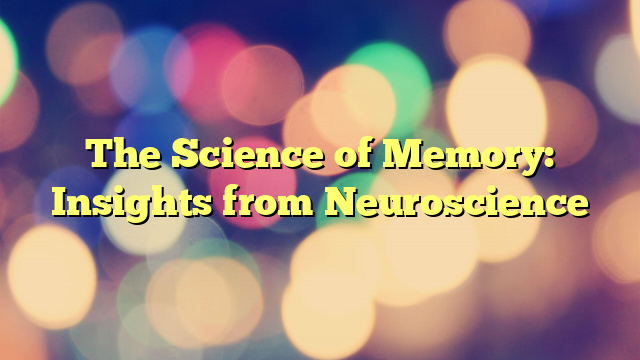Emotions play a crucial role in our daily lives, influencing our decisions, relationships, and overall well-being. But have you ever wondered how the brain processes emotions? In this article, we will explore the neuroscientific perspective on how the brain handles emotions.
The Limbic System
The limbic system is often referred to as the emotional brain, as it is responsible for processing and regulating emotions. This complex network of structures includes the amygdala, hippocampus, and hypothalamus, among others. The amygdala, in particular, is known for its role in fear and anxiety responses. When we perceive a threat, the amygdala sends signals to the hypothalamus, triggering the fight-or-flight response.
Neurotransmitters and Hormones
Neurotransmitters such as dopamine, serotonin, and norepinephrine play a crucial role in regulating emotions. Dopamine, for example, is often referred to as the feel-good neurotransmitter, as it is involved in the brain's reward system. Serotonin is known for its role in mood regulation, while norepinephrine is associated with the body's stress response. Hormones such as cortisol and oxytocin also play a significant role in modulating emotions.
Cognitive Control
While the limbic system is crucial for processing emotions, the prefrontal cortex plays a vital role in regulating and controlling them. This area of the brain is responsible for decision-making, problem-solving, and impulse control. Studies have shown that individuals with damage to the prefrontal cortex have difficulty regulating their emotions and exhibit impulsive behavior.
Neuroplasticity
Neuroplasticity refers to the brain's ability to adapt and reorganize itself in response to experience. This phenomenon plays a crucial role in how the brain processes emotions. For example, repeated exposure to stressful situations can lead to changes in the brain's structure and function, making individuals more prone to anxiety and mood disorders. On the other hand, practicing mindfulness and cognitive-behavioral therapy can promote neuroplasticity and help individuals regulate their emotions more effectively.
Conclusion
Understanding how the brain processes emotions from a neuroscientific perspective can provide valuable insights into our emotional experiences and behaviors. The interplay between the limbic system, neurotransmitters, cognitive control, and neuroplasticity all contribute to the complex process of emotional regulation. By gaining a deeper understanding of these mechanisms, we can develop more effective strategies for managing our emotions and improving our overall well-being.
FAQs
Q: Can emotions be controlled?
A: While emotions are often perceived as uncontrollable, research has shown that individuals can learn to regulate their emotions through various techniques such as mindfulness, cognitive-behavioral therapy, and relaxation exercises.
Q: What role do genetics play in emotional processing?
A: Genetics can influence an individual's predisposition to certain emotional disorders, such as depression and anxiety. However, environmental factors also play a significant role in shaping emotional processing.
Q: How does stress impact emotional processing?
A: Chronic stress can have detrimental effects on the brain, leading to changes in the limbic system and neurotransmitter levels. This can result in increased susceptibility to mood disorders and difficulty regulating emotions.
Q: Are there gender differences in emotional processing?
A: Research has shown that men and women may exhibit differences in emotional processing, with women often displaying greater emotional sensitivity and expressiveness. However, these differences are influenced by a variety of factors, including societal norms and individual differences.
Q: Can therapy help with emotional regulation?
A: Therapy, such as cognitive-behavioral therapy, can be effective in helping individuals learn to identify and challenge maladaptive thought patterns and behaviors that contribute to emotional dysregulation. By working with a therapist, individuals can develop healthier coping strategies and improve emotional well-being.
Unlock Your Mental Potential



